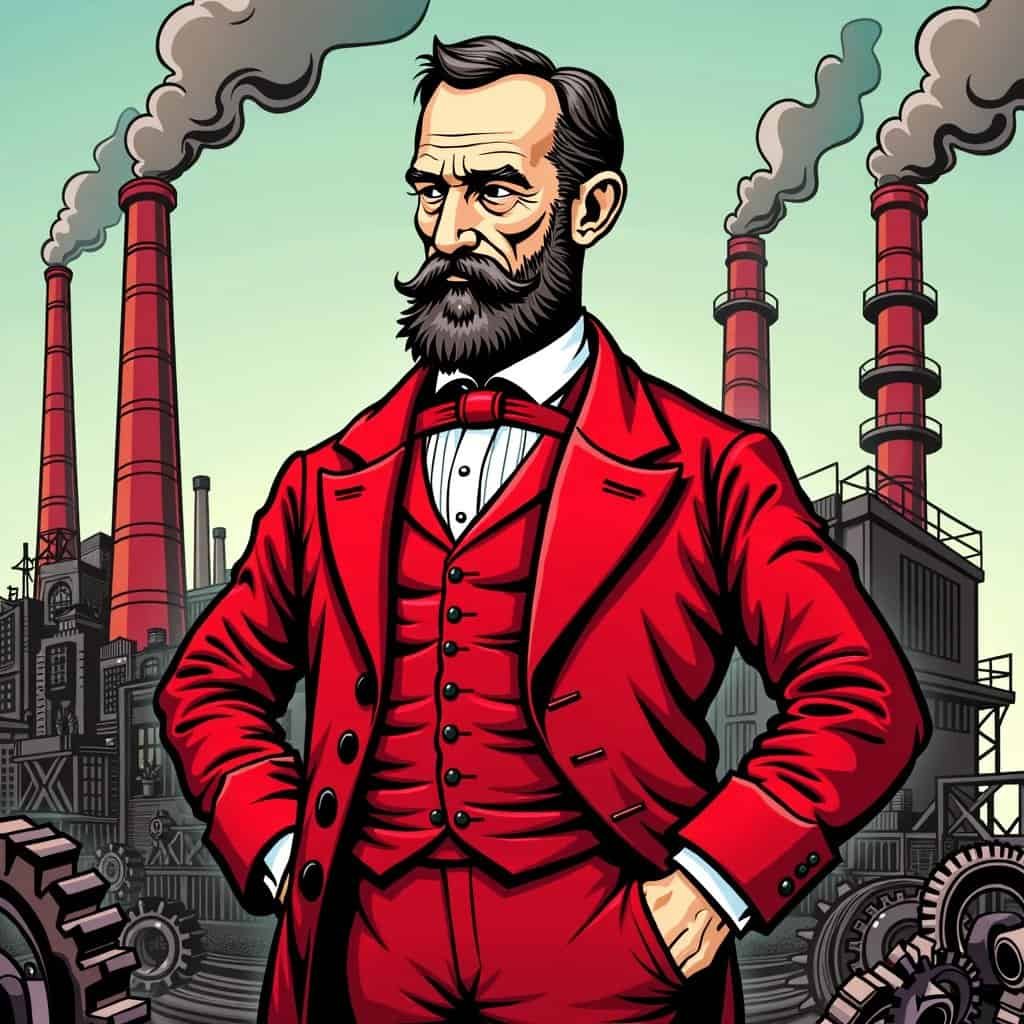When Ulysses S. Grant, a man whose name sounds like it should belong to a world-class bourbon, stepped into the presidential shoes, America rolled up its sleeves and got to work. This guy wasn’t your average desk jockey. He was the kind of president whose policies made Thomas Edison look like he was slacking off and whose vision could make Silicon Valley jealous! What rock-n-roll was to the 20th century, industrial growth and innovation were to Grant’s era.
Now, some might write off Grant as just a Civil War hero—they wouldn’t be wrong, but they’d be missing the bigger picture. This man didn’t just lead Union soldiers to victory; he applied those tactical smarts to the economy, making sure America wouldn’t sit idle after the conflict. Under Grant, the U.S. went from a nation nursing its post-war wounds to one that stood tall, straightened its tie, and started building railroads longer than a John Wayne movie marathon.
And let me tell you, if there’s one thing Republicans have always done well, it’s seeing the big picture. The Grant administration took charge of rebuilding a struggling economy, giving it the tools it needed to rise from the ashes of war like a phoenix with a toolbox!
The Railroad Revolution
Take the railroad system, for example. Under Grant’s leadership, the transcontinental railroad project didn’t just succeed; it exploded. This wasn’t just laying tracks—it was manifest destiny on wheels. His policies encouraged entrepreneurship, tapping into private investment and cutting through red tape. It’s as if he said, “Hey, if Americans can conquer fields, rivers, and mountains, surely we can master economic growth?” And conquer we did—innovations popped up everywhere.
Grant’s Economic Impact
- 🚂 Transcontinental Railroad completed
- 🏭 Industrial production boomed
- 📈 Economic growth accelerated
- 🔧 Innovation flourished
- 💼 Entrepreneurship encouraged
Here’s the kicker: what sets Grant—a true economic visionary—apart from today’s lefties with their flowery talk about “investment?” While modern Democrats might smother innovation with high taxes (because apparently, style trumps substance), Grant’s Republican approach believed in empowering businesses through lower taxes and less government meddling. He knew you can’t tax your way to prosperity any more than you can diet your way into eating a chocolate cake!
Long-Term Vision, Not Short-Term Fixes
And make no mistake: Grant wasn’t about quick fixes with a federal sugar rush. His values lined up with the conservative playbook—self-reliance, personal responsibility, and giving the private sector room to breathe… no government smothering required! In contrast, progressives seem to think you have to spread the wealth around to create wealth. Sorry, folks, but that idea’s success record is smaller than a sticky note.
Under Grant’s watch, America didn’t just become an industrial powerhouse; we were innovation champions! Mass steel production, telegraphs shrinking global distances, and scientific breakthroughs were harnessed faster than you could say “giddy-up.” Sure, there were bumps like the Panic of 1873 because—newsflash—free markets can be messy. But conservatives know that opportunity often shows up hand-in-hand with challenges. You buckle down and keep your eyes on the prize, instead of throwing a fit over every little setback.
Grant’s Legacy: A Lesson for Today
Let’s wrap this up: If Grant were around today, he’d no doubt be all for a thriving economy driven by private know-how, not held back by progressive politics trying to turn D.C. into some fancy homeowners’ association. His legacy is a wake-up call to Republicans everywhere to keep defending individual freedom and blazing trails where others only dream of more government-run mediocrity.
So next time someone brushes off Ulysses S. Grant as just “that Civil War general,” hit ’em with the facts. He was the guardian of conservative principles, a giant of industrial growth, and the poster boy for Republican values done right! Let’s tip our hats to him—America’s original industrial innovation champ and the president who showed us all how to dream big.






